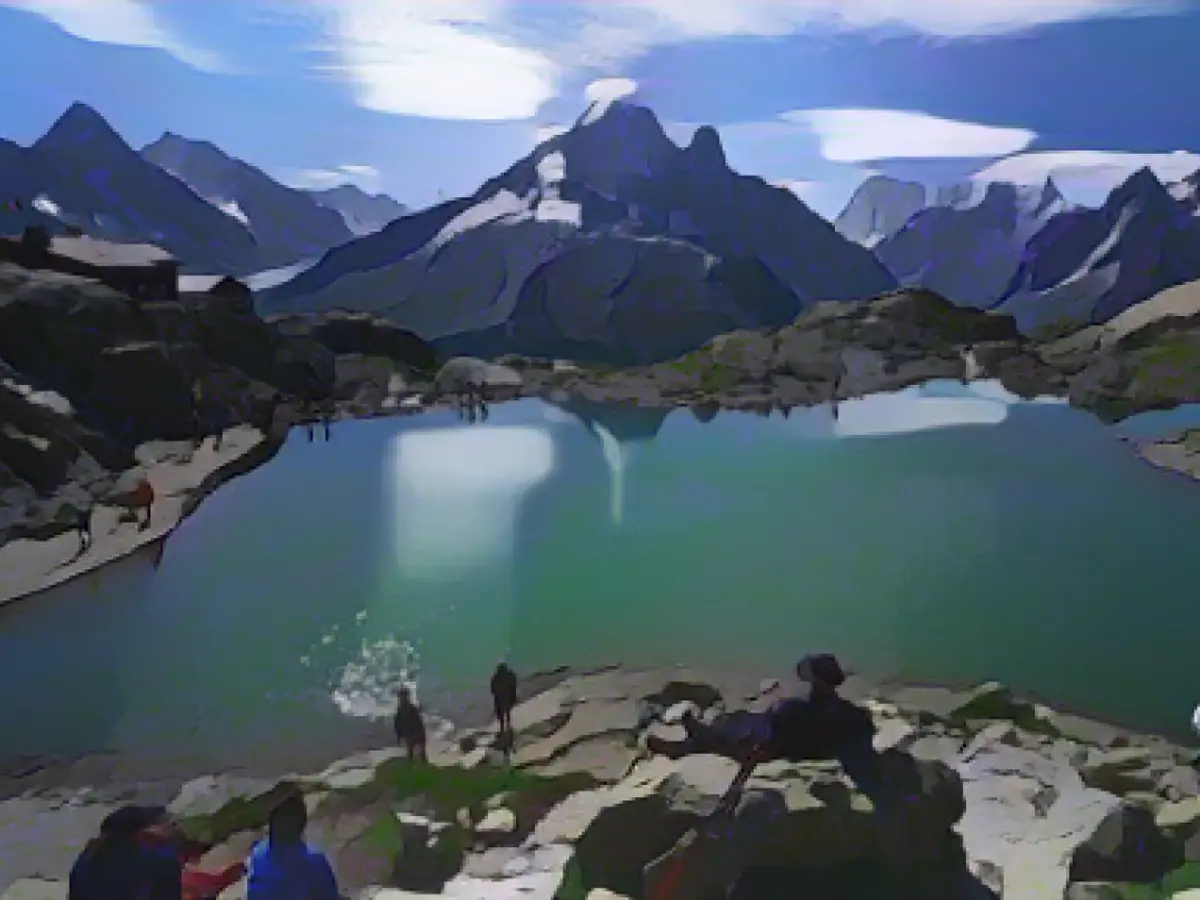Alps' Record-Breaking September and Summer of 2023
In 2023, the Alps saw its warmest September in recorded history, according to meteorologists from German Weather Service (DWD), Geosphere Austria, and MeteoSwiss. This alarming trend is detailed in their publication series "Alpine Climate."
Extreme Summer Weather Events
The summer half-year of 2023 was marked by numerous temperature records and extreme precipitation, the researchers reported. The beginning of August brought record precipitation to southern Austria and neighboring regions in Italy and Slovenia, leading to severe flooding.
The period also saw several daily and monthly temperature records from July 2023. Following the initial July heatwave, another one hit at the end of August, with new record temperatures recorded in places like Sion, Switzerland, reaching 37.6 degrees Celsius.
Munich's Seasonal Changes
Despite these extreme weather events, Munich, located in Bavaria, Germany, went through its typical change of seasons in 2023.
Monitoring Climate Change Impacts
The German Weather Service (DWD) and its counterparts in Austria and Switzerland are closely tracking the climate change impacts in the Alps, including areas in Italy and Slovenia. The meteorological data reveal that the Alps are experiencing a significant climatic shift, with extreme weather becoming a concerning trend.
Record-Breaking Temperatures Across Europe
The current climate change crisis has resulted in temperature records being broken across Europe, in places like Switzerland and Italy, in addition to Sion.
Urgent Action Needed
In response to the extreme weather events, many cities in Germany, including Munich, have introduced climate action plans to reduce their carbon footprint and become more resilient to climate change.
Collaborative Research
Austrian and Italian climate researchers are working together with their Swiss and German counterparts to develop strategies to mitigate the effects of climate change in the Alps and protect the region's unique ecosystems.
Enrichment Insights
Glacier Melting
- Nearly 30% of Alpine glaciers have lost their ice mass between 2000 and 2023, with the summer of 2022 bringing record heat and low snowfall levels.
- Some glaciers thinned by several meters in 2022, and further ice retreat was observed in 2023 across key glaciers in Switzerland, Austria, France, and Italy.
Extreme Heat and Low Snowfall
- The Alps are warming at approximately twice the global average, leading to more frequent and intense heatwaves.
- Insufficient snowfall exposes ice to direct solar radiation, causing faster ice degradation and resulting in shorter ski seasons.
Impact on Water Supply and Hydroelectric Power
- The decline of Alpine glaciers threatens water availability for millions in Europe, particularly during dry summers.
- Reduced water supply could impact electricity production in countries relying on glacial-fed rivers for renewable energy.
Tourism and Economic Impact
- Alpine resorts dependent on glaciers for winter sports are witnessing shorter seasons and deteriorating conditions, affecting mountain communities' economic stability.
Natural Disasters
- As ice retreats, landslides, avalanches, and glacial lake outburst floods pose significant threats to settlements and infrastructure in mountainous regions.
Sources: and research studies and weather services including MeteoSwiss, Geosphere Austria, and the World Meteorological Organization (WMO).








